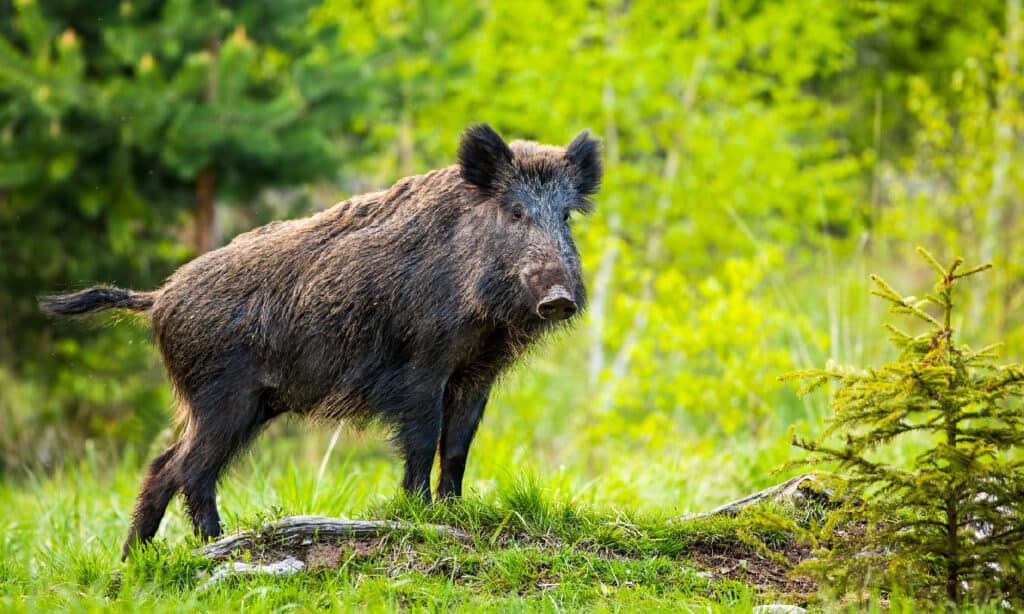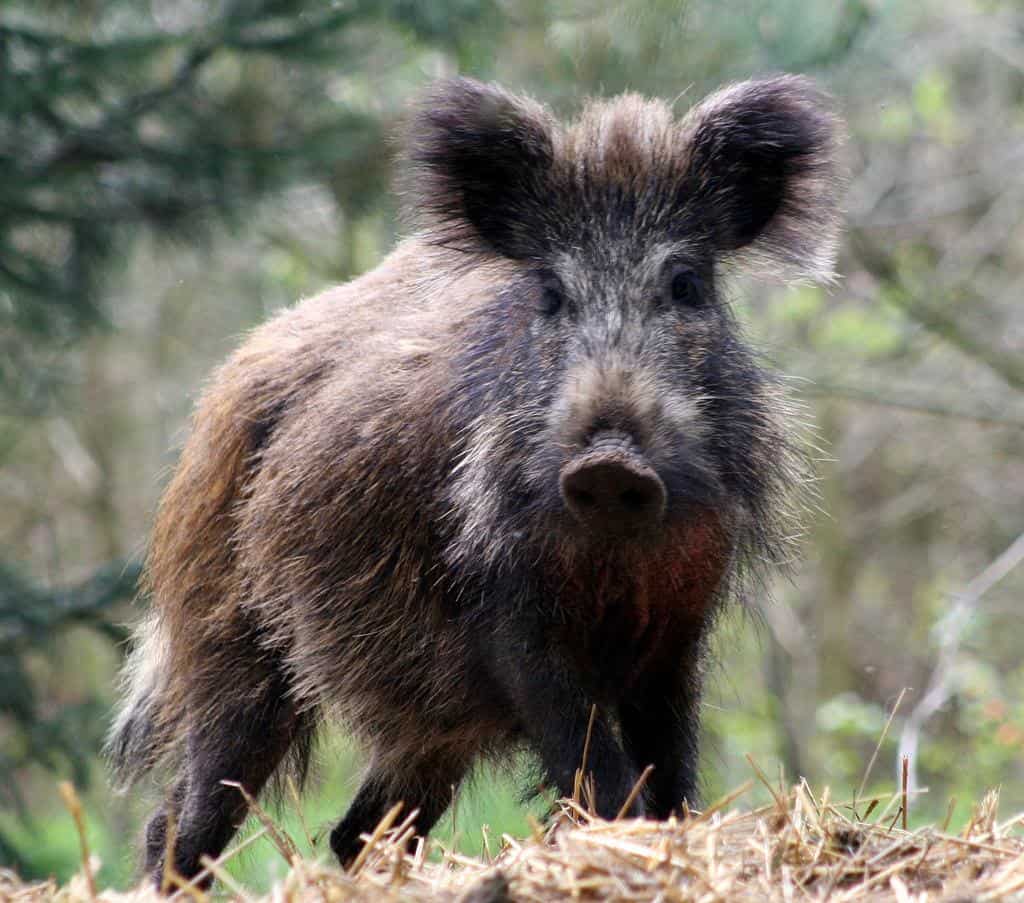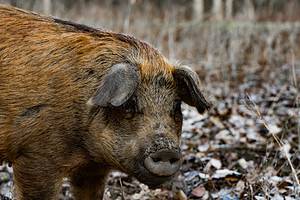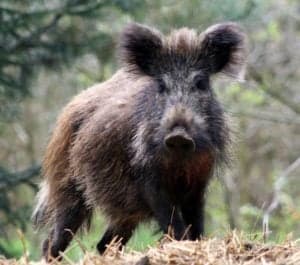Feral hogs are descendants of escaped farm pigs. And while they seem harmless enough, these animals are invasive species that cause hundreds of millions of dollars worth of damage across at least 39 states.
They cause enormous destruction to natural resources by consuming excessive amounts of vegetation, destroying plants and soil compaction, and uprooting rare and protected plant species. But more than that, feral swine is highly susceptible to parasites and infection, which they carry and pass to humans and pets. They are known to carry at least 30 viral and bacterial diseases and nearly 40 parasites.
Here are some of the diseases that feral hogs are spreading right now and how to protect yourself.

Feral hogs are known to carry at least 30 viral and bacterial diseases and nearly 40 parasites.
©iStock.com/JMrocek
Leptospirosis
This is a bacterial disease that can affect both humans and animals. The bacteria can spread through the infected animal’s urine, getting into soil and water. You can contract this disease through contact with contaminated pig urine, water, soil, and food. Poor quality drinking water and exposure to floodwaters often causes outbreaks.
The signs and symptoms of leptospirosis include fever, headache, chills, jaundice, vomiting, muscle aches, abdominal pain, and rash. Without treatment, this bacterial disease can lead to kidney damage, liver failure, and death.
Check out the CDC’s website for the most up-to-date information on the feral hog to human diseases.
Brucellosis
Brucellosis is another bacterial disease that feral swine can spread through close contact with humans. Coming into contact with an infected pig’s blood, bodily fluids, and tissues (meat, organs, etc.) can infect you. Symptoms can take some time to appear, between one week to six months, and include fever, chills, headache, loss of appetite, fatigue, and body aches. This disease can cause long-lasting health problems and even death if not treated promptly.
To lessen your chances of getting brucellosis, use protective gear when hunting and butchering, avoid contact with feral swine, and always cook pork thoroughly, remembering to wash your hands before and after handling the meat.
Toxoplasmosis
People can contract toxoplasmosis, a parasitic infection, from eating undercooked pork. This parasite is widespread in pigs worldwide, not just feral pigs. Many people that become infected do not have any symptoms, while others may experience flu-like symptoms. Infants and people with weakened immune systems are more susceptible to serious complications, like lung infection, eye disease, brain inflammation, and heart disorders. Pregnant women infected with toxoplasmosis can pass the infection to their unborn babies, making this swine-related (and other animal-related) health issue very serious.

Humans can contract feral pig diseases by eating undercooked contaminated meat or touching infected tissues, organs, and blood.
©vlod007 / CC BY 2.0, Flickr – License
JEV Japanese Encephalitis Virus
JEV is a flavivirus similar to the West Nile virus, and it spreads through mosquito bites. When a mosquito feeds on infected pigs, it can spread the virus to unsuspecting humans. JEV is an ongoing problem in Asia and the Western Pacific. But it’s possible it could find its way to the US. Those traveling to Asia should get a vaccination, use insect repellent, and wear long sleeves and pants. Most people have no symptoms or mild symptoms. But some may experience headaches, fever, disorientation, tremors, encephalitis, coma, and even death.
Tularemia
Tularemia is a bacterial disease. Many animals carry it, including feral hogs. Humans and pets can contract tularemia by ingesting raw or undercooked infected meat, handling dead animals, inhaling air in contaminated environments, drinking contaminated water, or being bitten by fleas and ticks. You can develop flu-like symptoms, rashes, eye swelling, chest pain, shortness of breath, and severe pneumonia. This disease can be difficult to prevent as it can spread easily through the environment. But you can lessen exposure by practicing kitchen hygiene, including cooking meat thoroughly, washing your hands, and washing fruits and vegetables.
Swine Influenza
The swine flu is a respiratory disease from the type A influenza virus. It can spread dangerously quickly through pig herds. But is relatively rare in humans. However, pigs can spread this virus through droplets in the air after the sneeze or cough. Some theories suggest you can contract it after touching contaminated surfaces. Symptoms include fever, sore throat, cough, headache, fatigue, nausea, and diarrhea. Avoid being around infected pigs, use PPE, and practice proper hygiene by washing your hands and avoiding touching your face.
Some other common feral hog diseases include trichinellosis, salmonella, E. choli, and hepatitis.
Note: This information is for informational and educational purposes only. AZ Animals does not give or attempt to give medical advice. Always seek the professional guidance of a licensed healthcare professional.
The photo featured at the top of this post is © iStock.com/JMrocek
Thank you for reading! Have some feedback for us? Contact the AZ Animals editorial team.






